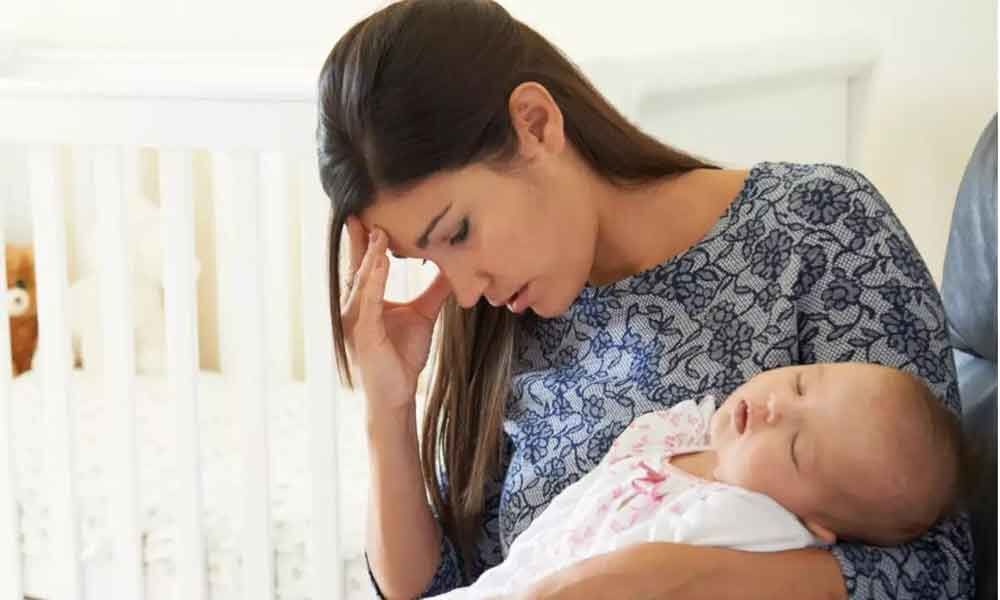Protect yourself and your baby

Prenatal depression occurs during pregnancy and can be triggered by many factors. In many cases, both patients and doctors ignore possible symptoms because they blame hormone changes
It's common to think of pregnancy as a time of hope, love, and joy.
However, for many women, it can also be a time of prenatal depression where the experience of pregnancy is often followed by sadness, fear, anxiety, and difficulty making decisions.
Many women have difficulty finding the energy to care for them. Some even have feelings about harming themselves and their children. These may be symptoms of depression.
Prenatal depression is common and occurs more often than you might think. It can even happen to you!
It's crucial not to ignore the signs and symptoms. Your life and the life of your baby may be at stake.
Learn more about prenatal depression:
1. Understanding prenatal depression. It's estimated that one out of every five women will experience depression during pregnancy or after childbirth. Prenatal depression occurs during pregnancy and can be triggered by many factors. In many cases, both patients and doctors ignore possible symptoms because they blame hormone changes. However, this type of depression can be dangerous for both the mother and child.
2. Common signs. Some of the most common symptoms are thoughts of death and suicide.
♦ The pregnant woman may have ongoing and recurring thoughts about killing her or others. She may also have thoughts about harming the baby, the father, and even try to do something violent.
♦ Other signs of prenatal depression include never-ending feelings of sadness and hopelessness. The mother may also have anxiety and feel guilty.
3. Depression triggers. Some medical experts believe that hormone and body changes during pregnancy can trigger depression, but there could be other causes as well.
♦ A mother's personal history of depression or another mental illness is the largest overall risk factor. A family history of depression or another mental illness could also have an impact. Depression or mental illness in the woman's partner could be the reason as well.
♦ Relationship issues are also a common trigger, because the mother may feel she isn't getting enough support. Her social life may be compromised and she may not get the necessary support from her friends. She may also worry about how the child will affect the relationship after the baby is born.
♦ Complications during pregnancy can also trigger depression. If the mother is on bed rest or worried about losing the baby, it's easier for depression to start. The joy of carrying the child is replaced with anxiety, worry, and fear. Problems with a previous pregnancy or birth could add to this as well.
♦ Other factors like - marriage or money problems, stressful life events, pregnancy at a young age, substance use disorders, family violence and chronic illness can cause prenatal depression as well.
4. Potential issues for the baby. Although some mothers are able to continue to take care of their bodies during depression, others struggle to eat healthy food or avoid alcohol and other harmful substances.
♦ Suicidal behavior is another major risk for the baby. A woman who suffers from prenatal depression is more likely to try to kill herself or the child.
♦ Drinking, smoking or overeating junk foods are also concerns because some women will turn to them for comfort.
♦ It's important to recognise that a woman who has prenatal depression may not be making the best decisions for her baby.
5. Treatment options. Treatment options vary, and it's important to discuss them with your doctor.
♦ Women with prenatal depression can find help through therapy.
♦ Both individual and group therapy sessions may be necessary. Discuss these options with your doctor and work out a schedule that fits your needs. Find sessions that welcome pregnant women.
♦ You may also benefit from some medications, but there are restrictions because drugs can affect the baby. A diet rich in natural proteins and Omega-3 can work as a natural anti-depressant and may be a healthier option.
♦ Being part of a support group of women dealing with prenatal depression could help.
♦ In addition, reducing stress and eliminating issues that are causing anxiety can help.
♦ Indulging in doing something creative, like coloring a mandala, may help release the negative emotions.
♦ Adjustments to diets, exercise, and lifestyles may also provide some assistance.
♦ The most important step is to seek help and not ignore the symptoms. Doctors and therapists can determine the best treatment plan on an individual level.
Prenatal depression is a real issue and shouldn't be ignored. I want you to know that you are never alone.
If you are feeling sad, worried or frightened during your pregnancy or after your baby is born, seek help. If you know someone else who shows signs, give her support and encourage her to seek treatment.
She shouldn't have to suffer alone and fight without help.
Learn about prenatal depression today. You could save a life - or two.
(The writer is an international bestselling author and celebrity life coach)








